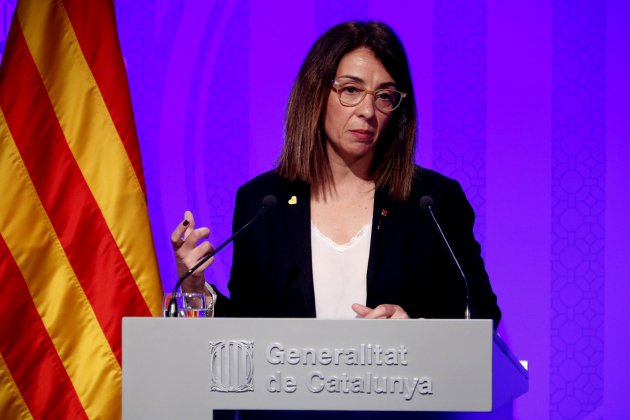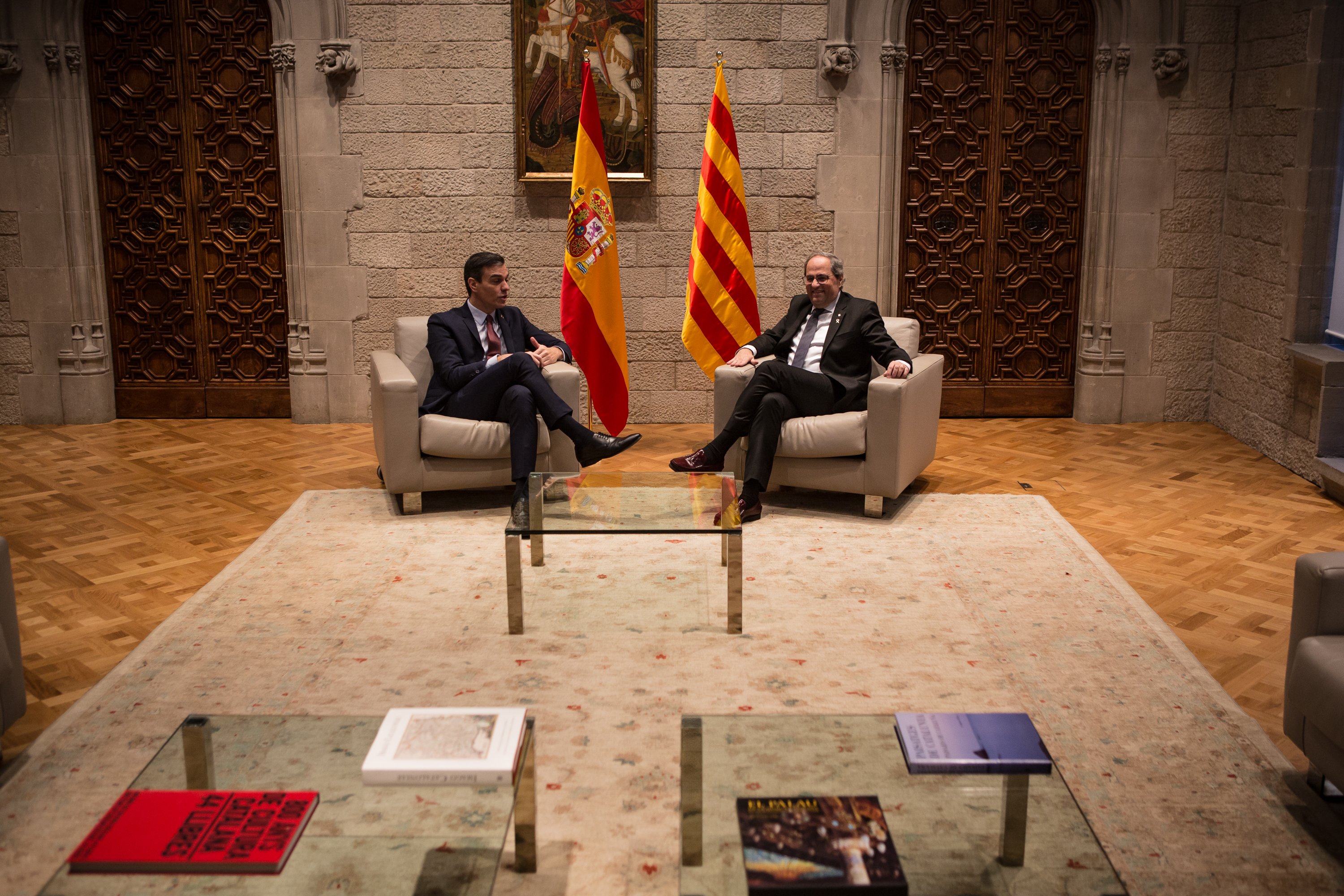Contrasting messages from the governments in Madrid and Barcelona with less than 24 hours until the first meeting of the Spain-Catalonia dialogue table created in reponse to the political conflict. In the Spanish government's Moncloa palace, deputy PM Carmen Calvo said the key aspect was "to sit down at a table together", and suggested a good starting point might be the 44 points that Pedro Sánchez handed to Quim Torra during their meeting in Barcelona on February 6th. By contrast, Catalan government spokesperson Meritxell Budó told the press that the Catalonia side would raise specific issues at the first meeting: in particular, the presence of a mediator at the talks, long rejected by the Sánchez government.
With the meeting set for 4.30pm on Wednesday, the Spanish deputy PM suggested that "the best agenda is to sit down, listen to each other, learn the positions on which we are not united and look for those that could unite us". She recalled that at the meeting two weeks ago, prime minister Sánchez had "very specific responses" on an "accumulation of questions and expectations" built up over many years by the Catalan government in its relationship with the state administration. "For both sides to be here tomorrow to talk about the way out of that, is something looked on very positively by public opinion," said Calvo, calling for "political energy to be put into what is useful."
With regard to the delegation chosen by the Catalan government, the deputy PM avoided entering the controversy on its composition stirred up by some of her Socialist colleagues yesterday, emphasizing that "the important thing is to sit down together". She commented that her executive was a coalition government, which also had its complexities. "If that is the delegation, that they consider appropriate, this is ours," she said, in partial reference to the Spanish side's last minute incorporation yesterday of two further members: finance minister María Jesús Montero and development portfolio holder José Luis Ábalos. "We all see ourselves as having the ability and responsibility to engage in dialogue," she concluded.
Carmen Calvo rejected that the so-called "agenda for the re-encounter" would address issues that had to be discussed by the already existing bilateral commission, which has not been called for years. Rather, she said, this table would focus on "reflections and responses" on "questions of political substance". She emphasised the difference between the coalition government's approach and that of the preceding Popular Party administration's refusal to talk, saying that her executive represents "the capacity to find answers".
With regard to the dynamics of the dialogue table, the Spanish Vice President reiterated that the positions of the two sides are "at opposite extremes" and that it will take time. However, she reiterated that it would be best to start with "a reflection on how we got here" and then start talking about the topics on which it was easiest to find points in common. "In the areas where we don't agree, because we are distant from the positions of the independence movement, we will have a space that allows us to move forward," she said.
The mediator, first question
However, the Catalan government has repeated that at Wednesday's meeting it will be raising one procedural issue on which the two sides are clearly opposed: the proposal for the presence of a mediator at the negotiating table. The Catalan minister for the presidency, Meritxell Budó, said on Tuesday that "the need for a mediator will be debated". She also said that the Catalan delegation will raise what it considers as the questions of substance: Catalonia's right to self-determination, along with the end of Spanish authorities' repression and the judicialization of politics.

Budó also responded to the criticisms raised about the inclusion in the Catalan line-up of four people who are not members of the Catalan government: MPs Elsa Artadi, Marta Vilalta and Josep Maria Jové, and former presidential chief of staff Josep Rius. The dialogue table is a government-to-government negotiation, she said, and the Catalan president and vice president - representing the two parties in the Catalan coalition - had considered it appropriate to include people who do not form part of the current cabinet, and for this reason, she stressed the Catalan government's support for the team it had chosen. "This is the most effective representation with which to tackle the dialogue. Maximum confidence in this negotiating team," she said.
Budó noted that no agenda had been agreed between the two parties, but asserted that issues regarding Catalonia's self-government, included in Pedro Sánchez's 44-point list from the Barcelona meeting on 6th February, should be debated at the bilateral commission

